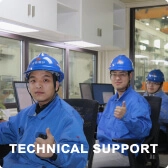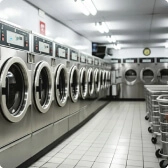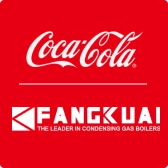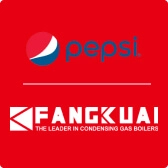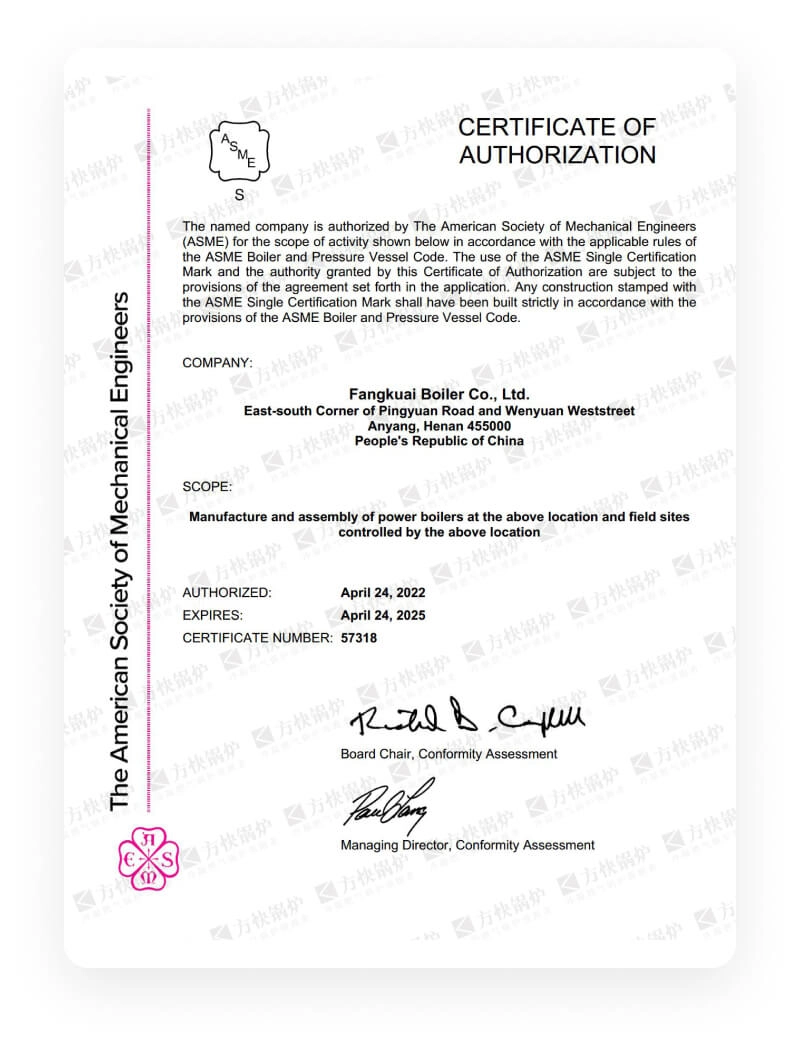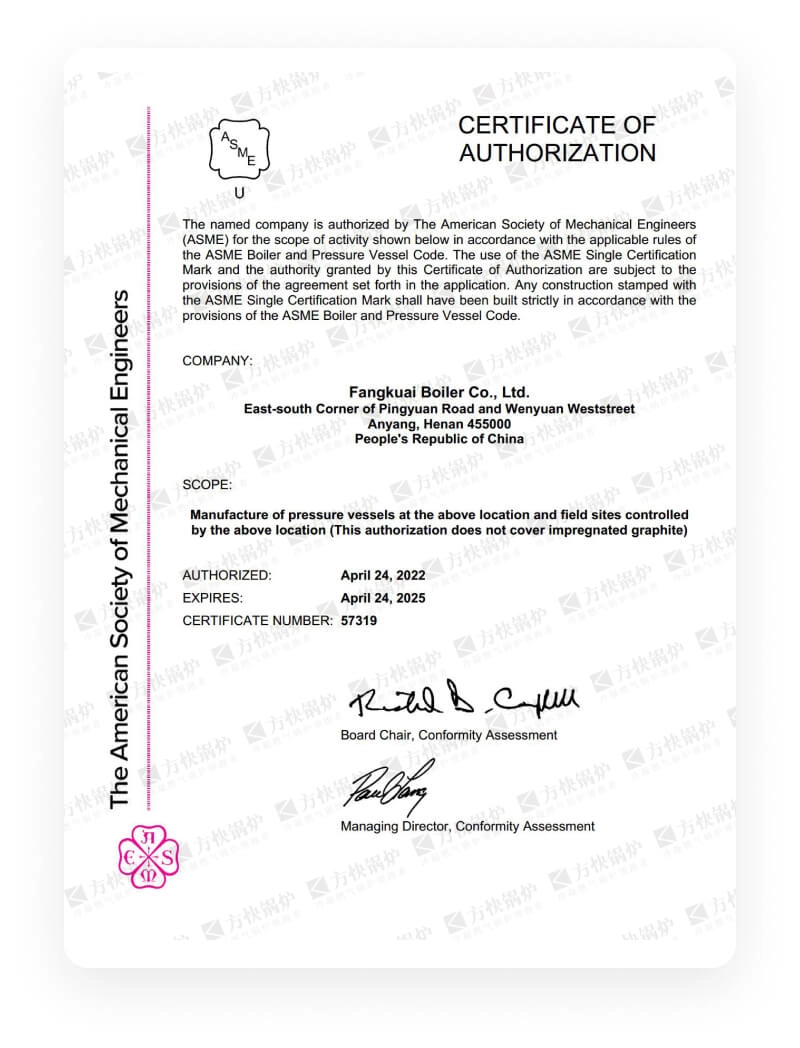Highest Efficiency Steam Boilers | Energy Saving Experts
date: 2025-08-01
Page preview:
1. What is the most efficient boiler?
Electrode boilers achieve near-perfect thermal efficiency (99.5–100%), the highest among all steam boiler. Their design eliminates energy-conversion losses by directly transforming electricity into heat within water:

How Electrode Boilers Work:
- A three-phase electrode and a neutral electrode cylinder are fully submerged in an electrolyte solution (water).
- When energized, current flows between electrodes, directly heating the water via electrical resistance.
- Critical advantage: No heat exchangers or combustion chambers, eliminating heat-transfer losses (≈5–15% in conventional boilers).
FangKuai Electrode Boiler Innovations:
- Submerged Electrode Structure: Electrodes immersed in water prevent arcing (water’s dielectric effect quenches arcs).
- Advanced Insulation System:
- Conductor: High-conductivity brass rod core.
- Insulator: 95% alumina ceramic sleeves (high-temperature resistance >1,000°C, electrical insulation >100 kV/mm), ensuring >30-year lifespan.
- Instant Heating: Direct energy conversion enables rapid steam output (seconds vs. minutes in fuel-fired boilers).
Technical Reality: Electrode boilers are the most energy-efficient option – but this rarely translates to cost efficiency.
2. The Boiler Efficiency-Cost Paradox: Why 100% ≠ "Best"
Despite near-perfect efficiency, electrode boilers are often financially impractical due to energy source economics:
- Electricity vs. Fuel Costs: In most regions, electricity is 3× more expensive per energy unit than natural gas or oil.
- Example: Generating 1 ton of steam might cost 60/hour∗∗withelectricityvs.∗∗20/hour with gas.
- System Efficiency ≠ Affordability:
Even at 99.5% efficiency, a gas boiler at 96% efficiency (with heat recovery) has 70% lower operating costs due to cheaper fuel.
When Electrode Boilers Do Make Sense:
- Locations with low-cost surplus electricity (e.g., hydroelectric dams).
- Zero-emission mandates (hospitals, labs).
- Backup steam systems requiring instant response.
3. Practical Recommendation: FangKuai Gas Steam Boilers

For most industrial applications (0.7–1.8 MPa pressure needs), FangKuai gas-fired boilers offer the optimal balance:
| Feature |
Specification |
Economic Benefit |
| Base Thermal Efficiency |
93% |
25% lower fuel use vs. standard boilers |
| With Flue Gas Heat Pump |
96% efficiency |
Exit temps near ambient (e.g., <35°C) |
| Pressure Range |
0.7–1.8 MPa |
Ideal for process steam/heating |
| NOx Emissions |
<30 mg/m³ |
Meets global eco-standards (e.g., EU) |
Key Advantages:
- Flue Gas Recovery: Condenses latent heat from exhaust, boosting efficiency by 3–5%.
- Scalability: Modular designs match varying steam demands.
- Proven Reliability: Field data shows consistent output (e.g., exhaust temperatures at ambient levels in summer).
4. Making the Right Choice: Key Considerations
Use this decision framework for boiler selection:
-
Steam Demand Profile:
- High/Critical Loads: Gas boilers (cost-effective at scale).
- Low/Intermittent Loads: Small electrode boilers (minimal idle losses).
-
Operational Costs:
- Rule of Thumb: Electricity > Oil > Gas. Prioritize fuel availability.
-
Emission Regulations:
- Electrode: Zero onsite emissions.
- Gas: Clean combustion (NOx/SOx < 30 mg/m³).
-
Space/Maintenance:
- Electrode: Compact, low-maintenance.
- Gas: Requires exhaust treatment (stack, pumps).
Conclusion: The True Measure of "Efficiency"
Electrode boilers lead in energy conversion efficiency but fall short in economic efficiency for most users. FangKuai gas steam boilers (96% efficiency with heat recovery) deliver the best real-world value across cost, reliability, and flexibility. For sustainability-focused industries, combining gas boilers with future green hydrogen or electrode systems during off-peak electricity hours may offer a balanced path forward.
Final Advice: Maximize system efficiency first – then choose the fuel that minimizes lifetime costs.
FAQ
Q: Does a 100% efficient electrode boiler consume less energy?
A: Technically yes, but energy ≠ cost. Per unit of steam produced, electricity is often 3× pricier than gas.
Q: How do gas boilers achieve 96% efficiency?
A: Flue gas heat pumps condense exhaust moisture, capturing latent heat typically wasted.
Q: Are electrode boilers safer?
A: Yes. Water submersion eliminates fire/explosion risks and suppresses arcing.
Q: What’s the payback period for a heat recovery retrofit?
A: Typically 1–3 years due to 5–8% efficiency gains (highly recommended for gas/oil boilers).


